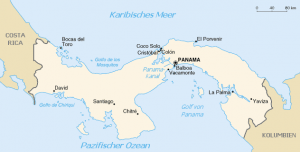Panamanian officials say a border agent who worked near the Colombia border has died due the mosquito borne viral disease, Venezuelan Equine Encephalitis (VEE), according to a local media report (computer translated).

The deceased officer of the State Border Service (SENAFRONT), died in late August, but was only revealed last week.
On Thursday, authorities said in a public statement that there are 11 confirmed cases of Venezuelan Equine Encephalitis, including death; and a case for human Eastern Equine Encephalitis (EEE).
As for diagnosis of encephalitis in horses, 10 cases had a positive diagnosis of which 6 were eastern equine encephalitis, and the diagnosis for the other four is pending.
Venezuelan equine encephalitis is an acute viral disease characterized by fever, chills, headache, nausea, vomiting, lumbosacral pain, and myalgia, which may progress to encephalitis. It is caused by the Venezuelan equine encephalitis virus and is a significant disease in the Americas.
Eastern Equine Encephalitis (EEE) is spread to horses and humans by infected mosquitoes, including several Culex species and Culiseta melanura.
Symptoms of EEE disease often appear 4 to 10 days after someone is bitten by an infected mosquito.
EEE is a more serious disease than West Nile Virus (WNV) and carries a high mortality rate for those who contract the serious encephalitis form of the illness. Symptoms may include high fever, severe headache, stiff neck, and sore throat. There is no specific treatment for the disease, which can lead to seizures and coma.
Robert Herriman is a microbiologist and the Editor-in-Chief of Outbreak News Today and the Executive Editor of The Global Dispatch
Follow @bactiman63


2 thoughts on “Panama border agent dies from Venezuelan Equine Encephalitis: Report”